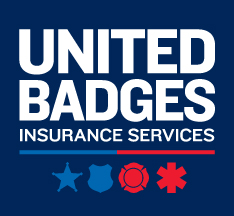- Home
- Foundation
- Sections
- EMS Section
- Emergency Vehicle Technicians Section
- Executive Leadership Development Section
- Search and Rescue Section (FASAR)
- Fire Rescue Cadets Section
- Fire Prevention Section
- Hazmat Responders Section
- Honor Guard Section
- Fire Service Instructors Section
- Public Information Officers Section
- Florida Volunteer Fire Officers Section
- Safety & Health Section
- Section and Committee Policy - Description and By-Laws
- Committees
- Legislative
- Events
- Resources
- Join Today
- FFCA Connect
Events Calendar
|
ESLI - Emergency Management
Sarasota County Emergency Operations Center 6050 Porter Way Sarasota, FL 34232
Monday, January 30, 2023 to Tuesday, January 31, 2023
Category: ESLI
Emergency Services Leadership Institute (ESLI) COURSE OUTLINE: This module will target Emergency Management best practices and the tools necessary for participants to build an effective and efficient Emergency Management program as an integrated division of the modern, comprehensive fire department as it relates to the governing agency, the private sector, and the public. Some emphasis will be placed on legislative directives at the Federal and State levels that affect local jurisdictions and can create compliance issues, some tied to funding. This module will also focus on the major tenets of Emergency Management with regard to standards and ethics, roles and responsibilities of key stakeholders and participants, the Disaster Life Cycle, and an integrated approach beyond the daily operations of the fire rescue department. This will not include instruction or discussion on NIMS or the ICS, beyond tertiary mention if and when appropriate to the overarching material included in the curriculum. The topics and core competencies listed will be delivered for the purpose, among others, of designing and developing an integrated, comprehensive and cost-effective Emergency Management Program within the fire and emergency services. Given that most firefighters and mid-level officers have had little, if any, specialized education or experience in Emergency Management elements or issues, and few have had direct disaster experience beyond the daily operations within their jurisdiction, this module will provide a detailed set of core competencies, resources, and information that will assist the fire service leader in achieving stakeholder support toward implementation of the program. It is important to understand that fire service leaders are best aligned to meet the myriad challenges in the formal Emergency Management arena, a theory based on the daily response capabilities intrinsic to the service, the use of an Incident Command Structure, an understanding of the most austere, real world environments, and the sheer number and variety of training subject matter that the fire service leader has experienced that the lay person has not. The very nature of fire rescue operations best lends itself to leadership in the Emergency Management program across the entire governing agency and its departmental boundaries and lends credibility to the program in the private sector and throughout the public community due mostly to the fire service’s ownership of the public trust. It is vital for fire service personnel at all levels to understand that a Comprehensive Emergency Management Program reaches far beyond the fire department or the fire service leader’s scope of experience as a career firefighter. It will be critical for the participant to take away a mission and vision that is based on the foundation of an “all-hazards, all phases, all actors” approach with a particular focus on the most vulnerable populations in the community. Whereby command and control may be the governing methodology throughout the history of the fire service, the comprehensive Emergency Management methodology focuses more on communication and coordination, a difference that the career fire service leader may find challenging. This module is designed to overcome such barriers and to deliver the core competencies that will broaden the perspective of the participant toward a more integrated, inclusive and cooperative vision of the Emergency Management landscape. The topics and core competencies listed represent some of the top issues being discussed and implemented in Emergency Management today. While these lists seem quite exhaustive, each issue will be discussed to the appropriate level to deliver the fundamental competencies for leaders to engage in the design, development and implementation of an Emergency Management program within their department and for their jurisdiction. This module, however, should not be construed to be a certification or any other credentialing offering in the field of Emergency Management. Participants will be strongly encouraged to engage in, at minimum, an accredited certificate or higher education Emergency Management curriculum following completion of the module. The subject matter will include information from top leaders in the field of Emergency Management, open discussion among participants, experience(s) and idea sharing, and other materials. Topics:
For enrollment information, email: [email protected] |

 Prev Month
Prev Month View Month
View Month Search
Search Go to Month
Go to Month Next Month
Next Month
 Export Event
Export Event 